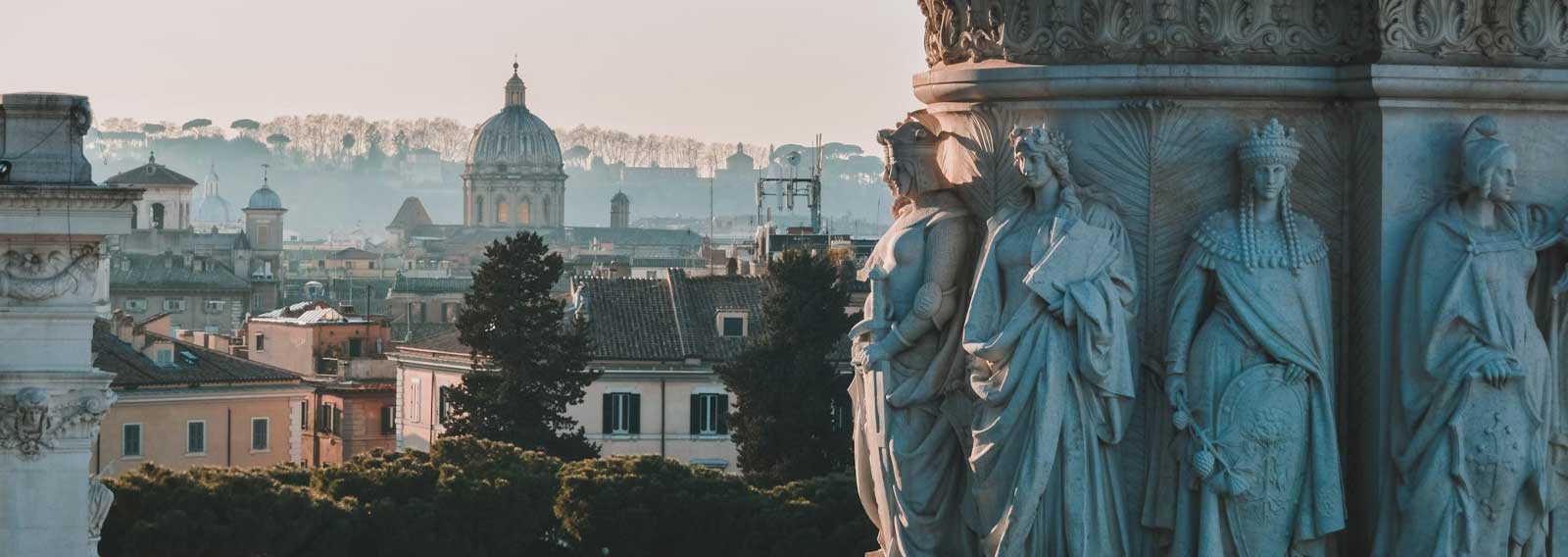Despite what many of our politicians might say, there is no such thing as a religiously neutral society. Religion and politics are inseparable, even if a religion is not explicitly acknowledged. Secularism is no exception.
As soon as you define areas where God is “not allowed to matter, or not allowed to come into the equation,” as soon as you judge an action or behaviour as moral or immoral, good or bad, you are exercising a religious conviction. You are presupposing a belief about God (whether or not He exists), how He relates to the world (or how He doesn’t), how we are to respond to Him (or not respond to Him). You don’t need an explicit reference to “god” for it to be a religious commitment, you only need to finish the sentence, “God is…”
Any contrast made between secularism and theocracy fails to recognise the fact that every system is governed by a reigning theos. This includes secularism. This means that even secularism is a form of theocracy. To identify the god of the system, you only need to locate that system’s source of law and highest court of appeals, as Cornelius Van Til noted. As such, it is not whether we implement a theocracy, but which theocracy will be implemented.
Whether it is the false gods of secularism or King Jesus, the reigning theos will, by necessity, limit the liberties of all competing systems to some extent. This is unavoidable. Absolute freedom is only possible in a lawless society. So, whether it is secularism or Christianity taking precedence, every alternative will be restrained at the point in which it conflicts with what the reigning system deems “good” for the wider society.
That’s why we don’t allow people to execute apostates, marry as many women as they want, or sacrifice humans to secure prosperity. It’s not a “criticism” unique to Christianity. It’s a question of how we define what is good, just, and loving. Is it God, or should the collective be free to do whatever is right in their own eyes?
In the end, only one religion can, and will, take precedence over all others to promote justice and social harmony. Secularism has sought to take that position from Christianity by presenting itself as an areligious, and therefore “neutral” alternative.
The problem is, it’s not areligious at all. It often presents itself as such to claim neutrality, but this is simply a fallacious appeal to ‘middle ground.’ Argumentum ad temperantiam. But secularism is a religion.
As secular humanist, John Dewey, wrote in The Humanist Manifest I:
“Religious humanists regard the universe as self-existing and not created… Humanism asserts that the nature of the universe depicted by modern science makes unacceptable any supernatural or cosmic guarantees of human values… Religion must formulate its hopes and plans in the light of the scientific spirit and method… Man is at last becoming aware that he alone is responsible for the realization of the world of his dreams, that he has within himself the power for its achievement… While this age does owe a vast debt to the traditional religions, it is none the less obvious that any religion that could hope to be synthesizing and dynamic force for today must be shaped for the needs of this age. To establish a religion is a major necessity for the present…”
Secularism is not opposed to religion. It’s not areligious or religiously neutral. It’s simply opposed to the religion that affirms the sovereignty of God over man. As such, within secularism there is a theology that must be maintained and a morality that must be upheld.
It is a system that replaces God with man, and the church with the state. And this has consistently been the recipe for the worst horrors inflicted on the world at the hands of fellow man.
When the “secular” state refuses to acknowledge an authority above itself, it becomes an authority to itself. Do away with Christianity as the basis of government and law and you do away with the notion that governing authorities ought to act within the bounds and limits prescribed in the Bible.
As such, the religion of secularism is no safeguard against religious tyranny. Much the opposite, in fact. It paves the way for the tyrant who would have the people recognise no king but Caesar and no law above the state’s decree. Sure, you can have your religion, provided you burn the incense in subjection to the established religion of the state. Are we not witnessing that inevitable outcome today?
The fundamental question we must all grapple with is: What religious framework should govern our societies? Historically, in the West, Christianity was our founding and defining religion. However, as society increasingly distances itself from its Christian heritage, we seem to be witnessing a rise in societal chaos and disorder. That is not by chance. It is the inevitable effect of casting off of that which made our nations great. In the end, the options before us are increasingly evident: it’s either Christ or chaos, because neutrality is simply not an option.























